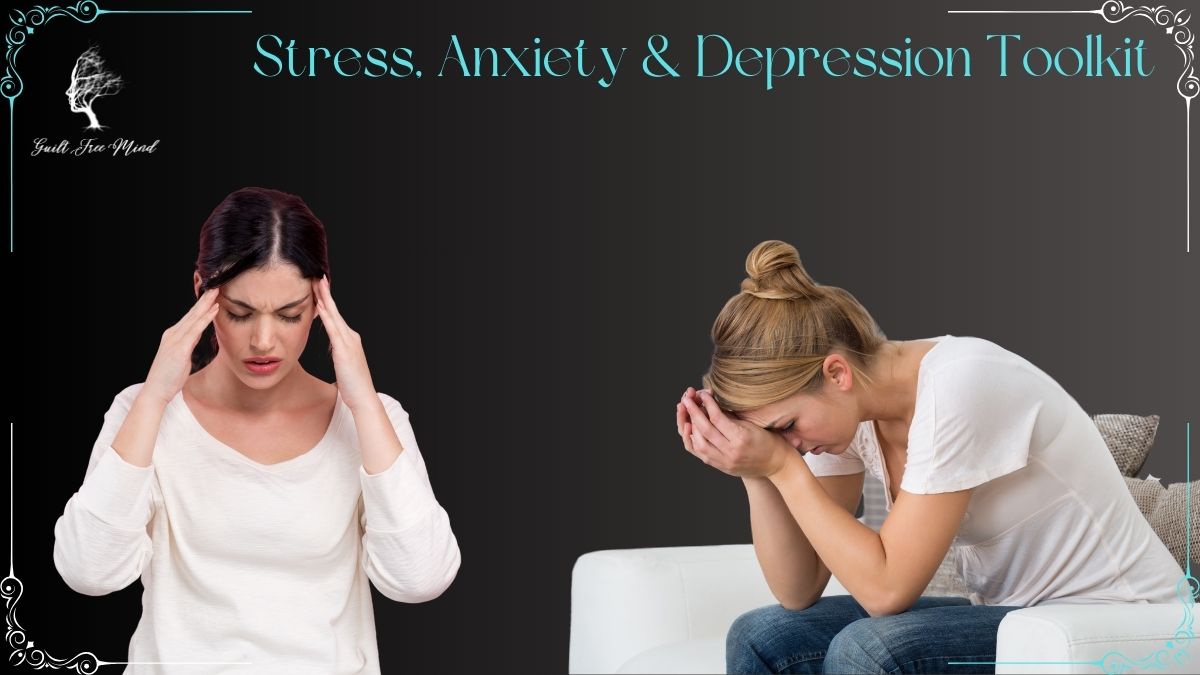Last Updated: May 25, 2025
Welcome to Guilt Free Mind’s Stress, Anxiety, and Depression Toolkit hub, your resource for practical, evidence-inspired strategies to manage life’s emotional challenges. With expertise in psychology and a compassionate approach, I offer tools like journaling, mindfulness, and goal-setting to help students, professionals, and parents navigate stress, anxiety, and depression. Whether you’re facing academic pressure, work demands, or family responsibilities, this hub equips you with accessible techniques to find calm, build resilience, and cultivate a guilt-free mind. Let’s start this journey together—you deserve to feel empowered and hopeful.
The Stress, Anxiety, and Depression Toolkit hub provides a comprehensive set of strategies to address these common mental health challenges, complementing sub-hubs like Overcome Depression and Helplessness, Stress Management Methods and Anxiety and Coping Strategies with targeted approaches for emotional well-being.
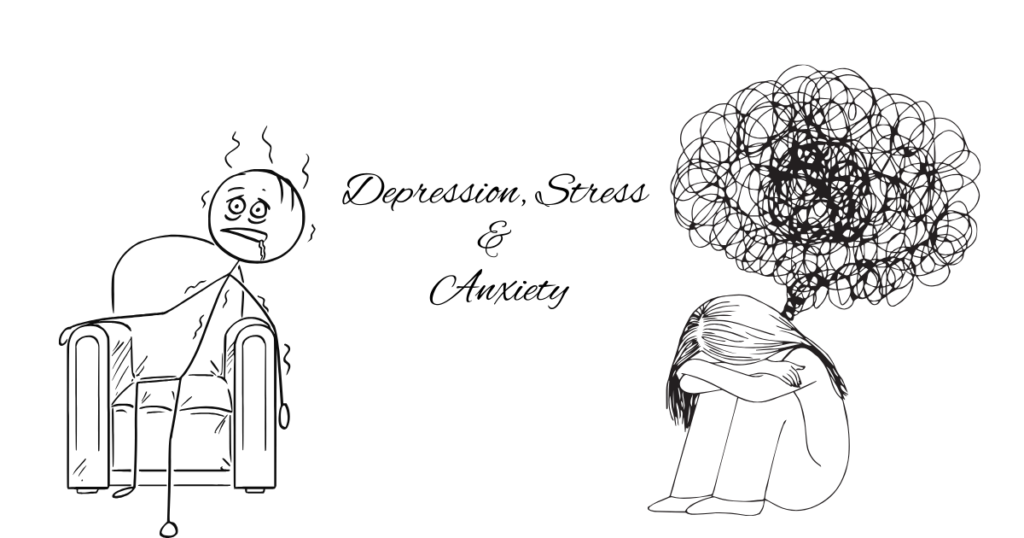
What Is the Stress, Anxiety, and Depression Toolkit?
Stress, anxiety, and depression are interconnected experiences that can overwhelm your thoughts, energy, and sense of control. Stress often arises from external pressures, anxiety fuels persistent worry, and depression brings persistent sadness or hopelessness. This toolkit offers structured strategies to manage these challenges, such as journaling to process emotions, mindfulness to stay grounded, and small actions to regain momentum. These tools are vital in high-stress environments, where demanding schedules amplify emotional strain. With minimal resources—a notebook, a quiet moment, or a supportive friend—these strategies are accessible to all, supporting your path to mental clarity.
Watch:
Benefits of the Stress, Anxiety, and Depression Toolkit
Using these strategies can transform your mental health, helping you thrive despite a demanding lifestyle. Key benefits include:
- Reduced Stress: Mindfulness practices calm the mind, easing daily tension.
- Lower Anxiety: Journaling helps process worries, reducing persistent fear.
- Improved Mood: Small, achievable actions lift depression symptoms, fostering hope.
- Enhanced Resilience: Structured goals build strength to face challenges.
For example, writing in a journal can clarify overwhelming thoughts, while a brief mindfulness exercise can soothe anxiety. These benefits are practical for busy schedules, making the toolkit ideal for students, professionals, and parents. This hub empowers you to manage emotional challenges with confidence.
You don’t have to see the whole staircase, just take the first step.
Martin Luther King Jr.
Challenges in Managing Stress, Anxiety, and Depression
Addressing these challenges in high-pressure environments can be difficult. Common obstacles include:
- Chronic Stress: Nearly 40% of Americans report reaching their stress limit, amplifying anxiety and depression.
- Time Constraints: Busy schedules disrupt consistent self-care routines.
- Emotional Overwhelm: Unprocessed emotions can deepen feelings of helplessness.
- Burnout: High workloads lead to fatigue, hindering emotional recovery.
This toolkit offers low-effort solutions, like 5-minute journaling or quick breathing exercises, to fit into any schedule, helping you overcome these barriers and foster emotional balance.
Practical Tools for Managing Stress, Anxiety, and Depression
This hub provides simple, effective tools designed for accessibility:
- Journaling: Write freely or use prompts to process emotions and reduce guilt.
- Mindfulness: Practice breathing or grounding exercises to stay present.
- Goal-Setting: Set small, achievable tasks to regain control.
- Social Connection: Reach out to trusted friends or family to combat isolation.
These tools require minimal resources, making them ideal for busy audiences. By integrating them into your routine, you can manage stress, anxiety, and depression, building resilience even in tough times.
Pin this article for later:
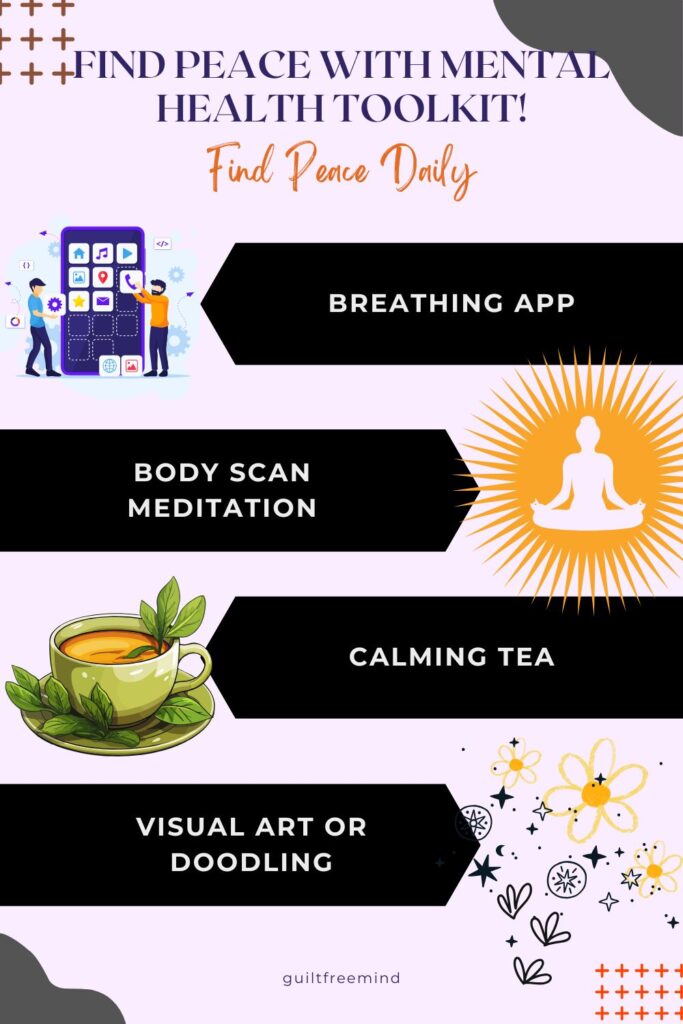
Journaling: Process Your Emotions
Journaling involves writing thoughts and feelings to gain clarity and reduce emotional weight. It’s a versatile tool for managing stress, anxiety, and depression, adaptable to any schedule.
Step-by-Step Guide to Journaling:
- Choose a Medium: Use a notebook or digital app.
- Set a Time: Dedicate 5–10 minutes daily.
- Write Freely: Let thoughts flow without judgment, or use prompts like “What’s on my mind today?”
- Reflect: Note how writing makes you feel—calmer or clearer?
Example: Lisa, a professional, journaled about work stress, feeling less overwhelmed after identifying her worries.
Mindfulness: Stay Grounded
Mindfulness involves focusing on the present moment to reduce anxiety and stress. Simple exercises can ground you amidst chaos.
Step-by-Step Guide to Mindfulness:
- Find a Quiet Space: Sit comfortably.
- Breathe Deeply: Inhale for 4 seconds, exhale for 4 seconds.
- Notice Your Surroundings: Focus on sounds or sensations.
- Reflect: Note if you feel more centered.
Example: Sam, a parent, used a 5-minute breathing exercise to calm anxiety before a busy day.
Goal-Setting: Regain Control
Setting small, achievable goals helps combat depression and helplessness, fostering a sense of accomplishment.
Step-by-Step Guide to Goal-Setting:
- Pick a Task: Choose something simple, like “Drink a glass of water.”
- Write It Down: Note why it matters.
- Act: Complete the task and check it off.
- Reflect: Note how it felt to achieve it.
Example: Alex, a student, set a goal to study for 10 minutes, feeling more in control after completing it.
Watch:
Social Connection: Reduce Isolation
Reaching out to others combats loneliness, a key factor in depression and anxiety.
Step-by-Step Guide to Social Connection:
- Choose a Person: Pick a trusted friend or family member.
- Connect: Call or message to share your thoughts.
- Engage: Listen and allow their support to lift you.
- Reflect: Note how the interaction felt.
Example: Maria, a caregiver, texted a friend, feeling less isolated after a supportive chat.
Cultivating Habits for Emotional Wellness
Building habits is key to managing stress, anxiety, and depression. Focus on one strategy at a time, like journaling daily, to create sustainable change. Consistency strengthens resilience, making emotional wellness a natural part of your life.
Identifying US-Specific Challenges
US-specific challenges often hinder emotional management:
- High Stress Levels: Work and academic pressures fuel anxiety.
- Burnout: Long hours lead to emotional exhaustion.
- Time Scarcity: Packed schedules limit self-care.
- Social Isolation: Busy lives reduce meaningful connections.
This hub addresses these with tailored, low-effort tools, ensuring you can prioritize mental health without overwhelm.
Trends for 2025 in Managing Stress, Anxiety, and Depression
In 2025, mental health strategies evolve to meet modern challenges:
Digital Mental Health Apps
Apps offer guided journaling and mindfulness exercises, fitting busy schedules.
- Solution: Use an app for quick journaling prompts.
- Example: Sarah, a student, used a mindfulness app to reduce exam stress.
Micro-Healing Practices
Short, 5-minute practices like breathing exercises suit hectic lives.
- Solution: Try a brief mindfulness session daily.
- Example: Jamie, a professional, used micro-breaks to manage anxiety.
AI-Powered Tools
AI tools provide personalized journaling prompts or goal-setting tips.
- Solution: Explore AI-guided reflection apps.
- Case Study: Lisa, a parent, used an AI app to set daily goals, feeling more in control.
Community Support
Virtual support groups foster connection, reducing isolation.
- Solution: Join an online mental health community.
- Case Study: Alex, a student, joined a support group, feeling less alone.
Managing Stress, Anxiety, and Depression in the Current Environment
Nowadays, the common trends are long work hours and academic pressure create unique challenges. This toolkit offers solutions:
- Reduce Stress: Use mindfulness to stay calm.
- Lower Anxiety: Journal to process worries.
- Lift Mood: Set small goals to combat depression.
- Build Connection: Reach out to others for support.
Case Study: Marianna, a parent of 2, struggled with anxiety. She journaled daily, practiced mindfulness, set small goals, and connected with a friend. Over weeks, her mood improved, relying on simple tools during tough moments.
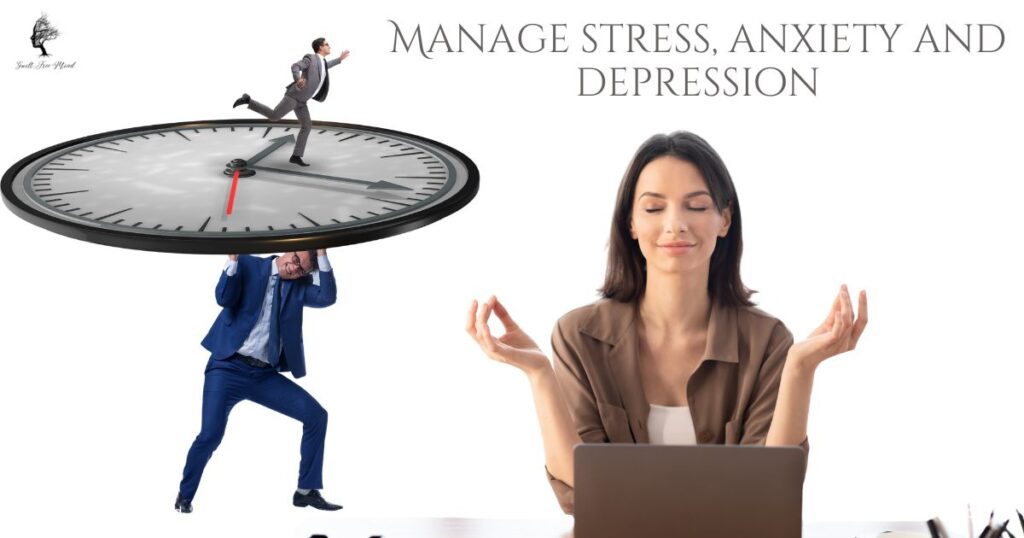
Explore sub-hubs like Overcome Depression and Helplessness for more strategies.
Explore More in the Stress, Anxiety, and Depression Toolkit Hub
In this section, you’ll find specialized sub-hubs designed to guide you through life’s emotional challenges with compassion and clarity. Whether you’re a student facing academic pressures, a professional navigating workplace demands, or a parent balancing family life, our sub-hubs—Anxiety and Coping Strategies, Stress Management Methods, and Overcoming Depression and Helplessness—offer practical, evidence-inspired tools to foster resilience and a guilt-free mind. From grounding techniques to journaling prompts, each sub-hub provides targeted strategies to help you find calm, regain control, and rediscover hope. Dive into these resources to start your journey toward emotional wellness, supported every step of the way.
Anxiety and Coping Strategies
The Anxiety and Coping Strategies sub-hub offers practical tools like grounding exercises, journaling prompts, and breathing techniques to soothe racing thoughts and restore balance. Designed for students, professionals, and parents, these expert-backed strategies empower you to navigate anxiety’s challenges, whether triggered by exams, work deadlines, or daily worries.
Anxiety Disorders: A Complete Guide
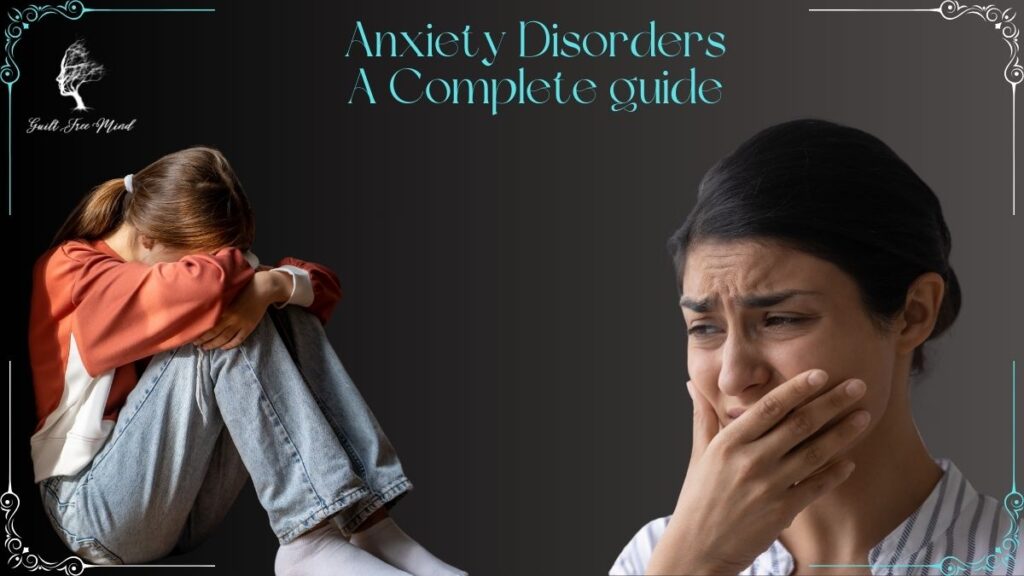
Description: Explore a comprehensive guide to anxiety disorders, from types to treatment options. Empower yourself with knowledge to manage anxiety and build emotional strength.
Causes of Anxiety: A Complete Guide
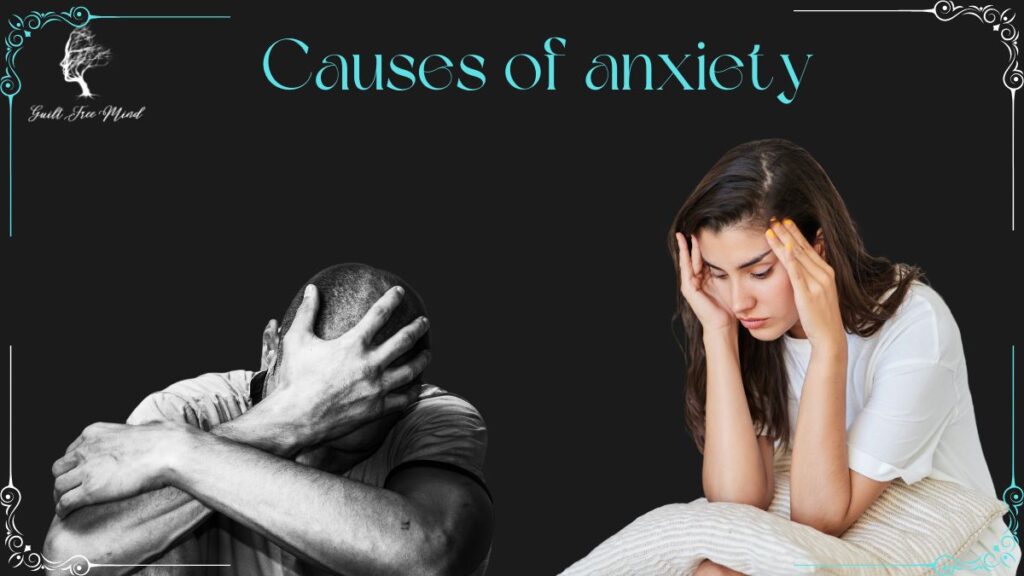
Understand the biological, environmental, and psychological causes of anxiety disorders. Gain insights to identify triggers and take proactive steps toward relief.
Anxiety Treatments: Going Beyond Medications

Explore non-medication anxiety treatments, including therapy and lifestyle changes. Find practical, holistic strategies to manage anxiety effectively.
Stress Management Methods
This hub provides practical strategies like time management, physical activity, and positive self-talk to reduce stress and reclaim control. Whether you’re overwhelmed by tight schedules or workplace pressures, our expert-inspired tools, including the free Stress Management Toolkit, guide you toward resilience and emotional clarity.
Combat Everyday Stress: 25 Brilliant Strategies
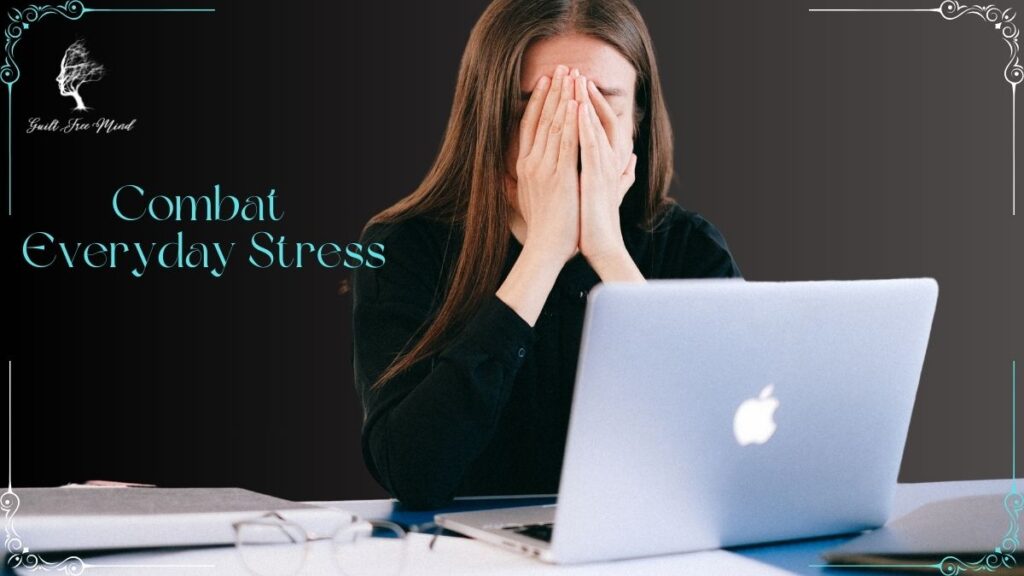
Description: Discover 25 expert strategies to combat daily stress, from mindfulness to exercise. Transform overwhelm into balance with practical, actionable tips.
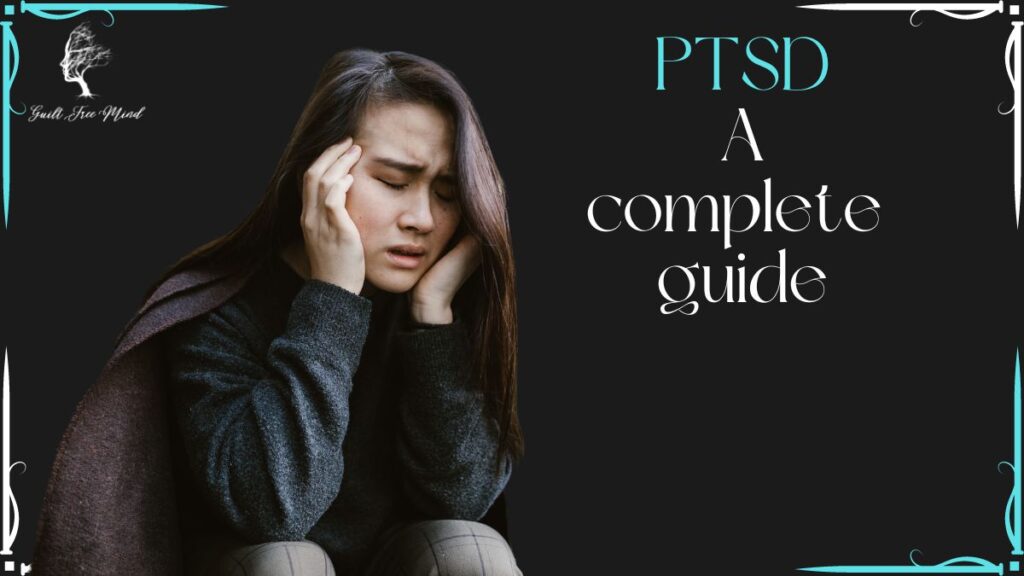
Description: Understand PTSD’s causes, symptoms, and management strategies for recovery. Gain tools to navigate trauma-related stress with resilience and support.
Overcoming Depression and Helplessness
This hub offers compassionate, evidence-based tools like journaling prompts and therapy exploration to lift your mood and combat feelings of helplessness. You’ll discover practical ways to reconnect with your inner resilience and embrace a guilt-free mind.
Causes of Depression: A Complete Guide
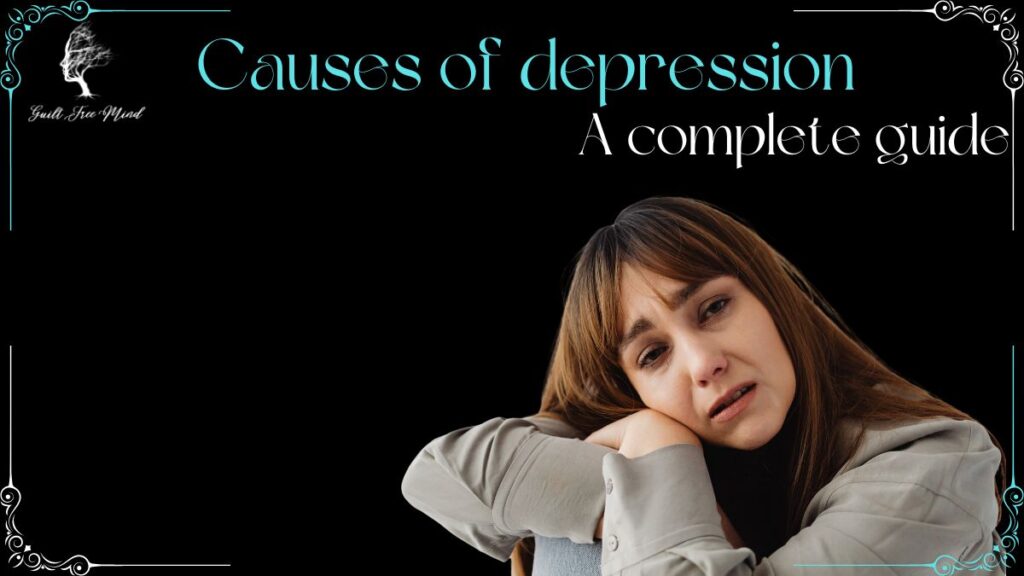
Understand the biological, environmental, and psychological causes of depression. Gain insights to address root factors and pursue effective treatment.
How to Cope with Depression Naturally?

Discover natural strategies like lifestyle changes to cope with depression effectively. Empower yourself with holistic tools to lift mood and regain hope.
Can Clinical Depression Be Cured? Treatment Guide 2025

Description: Explore 2025’s latest treatments for clinical depression and their effectiveness. Gain hope and practical strategies for managing and overcoming depression.
Connect with Guilt Free Mind
🌿 You Deserve a Path to Peace and Strength. 🌿
Healing from stress, anxiety, or depression isn’t about perfection—it’s about embracing small, courageous steps toward a lighter heart.
Every moment you choose self-care, you nurture your emotional resilience. 🌸
To guide you, I’ve created a Free Stress, Anxiety, and Depression Toolkit—thoughtful tools to support your journey. From mindfulness to journaling, these resources help you find calm, rebuild confidence, and reconnect with your inner strength, one gentle step at a time.
✨ Download your free Stress, Anxiety, and Depression Tools above —and begin a journey toward more peace, clarity, and hope.
✨ Subscribe to the blog for weekly insights, practical practices, and nurturing guidance.
✨ Join my YouTube channel for supportive videos, resilience-building exercises, and a community that lifts you up.
🌿 Your resilience is powerful. Your healing matters. And you’re never alone on this journey. 🌿
Frequently Asked Questions
Journaling, mindfulness, goal-setting, and social connection are key strategies, as outlined in the “Practical Tools” section. These tools help manage emotional challenges effectively.
Journaling clarifies thoughts, reduces guilt, and fosters resilience by providing a safe space to process emotions, as detailed in the “Journaling” tool.
Yes, setting achievable goals boosts a sense of accomplishment, combating helplessness, as explained in the “Goal-Setting” section.
Mindfulness exercises, like deep breathing, can calm anxiety in minutes, as described in the “Mindfulness” tool.
Listen without judgment and encourage small steps, like journaling or connecting, as inspired by the “Social Connection” tool.
About The Author
References
- Narayana Health. (2025). Mental Wellness Goals for the New Year: Tips for Stress-Free Living.
- American Psychological Association. (2025). Self-Compassion for Depression: Research Insights.
- Frontiers in Psychology. (2024). Social Relationships and Mental Health.
- Healthline. (2025). How to Fight Depression: Practical Strategies.
- MSN. (2025). America’s 2025 Stress Crisis: Why Nearly 40% Are Hitting Their Limit.
- Infinite Potential. (2025). The State of Burnout 2025.
- Reclaim. (2025). Mental Blocks: Overcoming Emotional Resistance.
- NAMS Annals. (2025). NAMS Task Force Report on Mental Stress.
- Center for Technology and Behavioral Health. (2025). 7 Behavioral Health Technology Trends to Watch in 2025.
- ScienceDirect. (2025). AI in Mental Health: Trends and Applications.
- Formosa 8. (2025). Top Health and Wellness Trends for 2025.
- Ohio Department of Children and Youth. (2025). Trauma-Informed Care Series: Responding to Trauma and Its Effects on the Brain in Children and Youth, Part 2.
